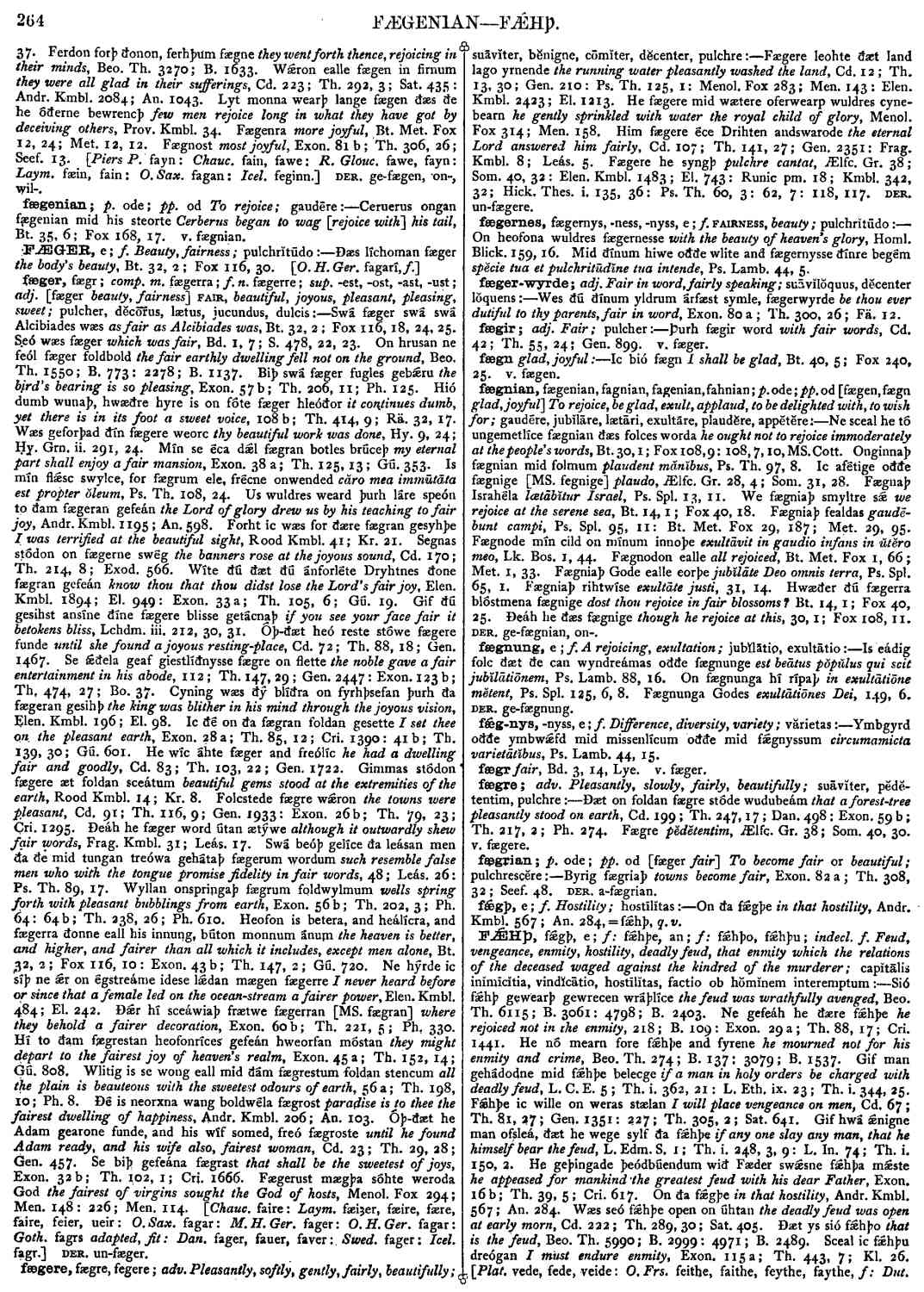fægnian
- verb [ weak ]
-
Ne sceal he tó ungemetlíce fægnian ðæs folces worda he ought not to rejoice immoderately at the people's words, Bt. 30, 1; Fox 108, 9: 108, 7, 10, MS. Cott. Onginnaþ fægnian mid folmum
plaudent mănĭbus,
- Ps. Th. 97, 8.
-
Ic afétige oððe fægnige [MS. fegnige]
plaudo,
- Ælfc. Gr. 28, 4;
- Som. 31, 28.
-
Fægnaþ Israhéla
lætābĭtur Israel,
- Ps. Spl. 13, 11.
-
We fægniaþ smyltre sǽ
we rejoice at the serene sea,
- Bt. 14, 1;
- Fox 40, 18.
-
Fægniaþ fealdas
gaudēbunt campi,
- Ps. Spl. 95, 11: Bt. Met. Fox 29, 187;
- Met. 29, 95.
-
Fægnode mín cild on mínum innoþe
exultāvit in gaudio infans in ŭtĕro meo,
- Lk. Bos. 1, 44.
-
Fægnodon ealle
all rejoiced,
- Bt. Met. Fox 1, 66;
- Met. 1, 33.
-
Fægniaþ Gode ealle eorþe
jubĭlāte Deo omnis terra,
- Ps. Spl. 65, 1.
-
Fægniaþ rihtwíse
exultāte justi,
- 31, 14.
-
Hwæðer ðú fægerra blóstmena fægnige
dost thou rejoice in fair blossoms?
- Bt. 14, 1;
- Fox 40, 25.
-
Ðeáh he ðæs fægnige
though he rejoice at this,
- 30, 1;
- Fox 108, 11.
Bosworth, Joseph. “fægnian.” In An Anglo-Saxon Dictionary Online, edited by Thomas Northcote Toller, Christ Sean, and Ondřej Tichy. Prague: Faculty of Arts, Charles University, 2014. https://bosworthtoller.com/9919.
Checked: 1